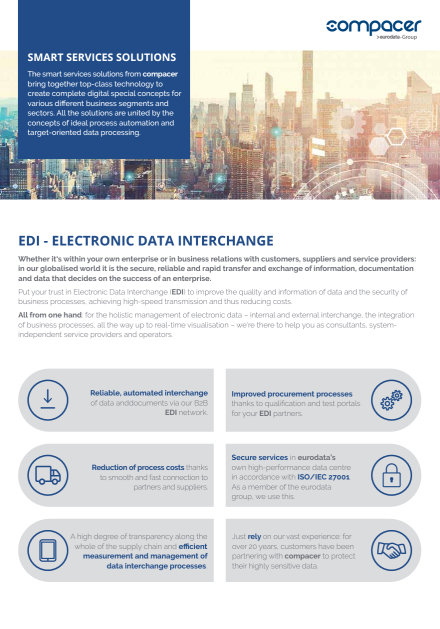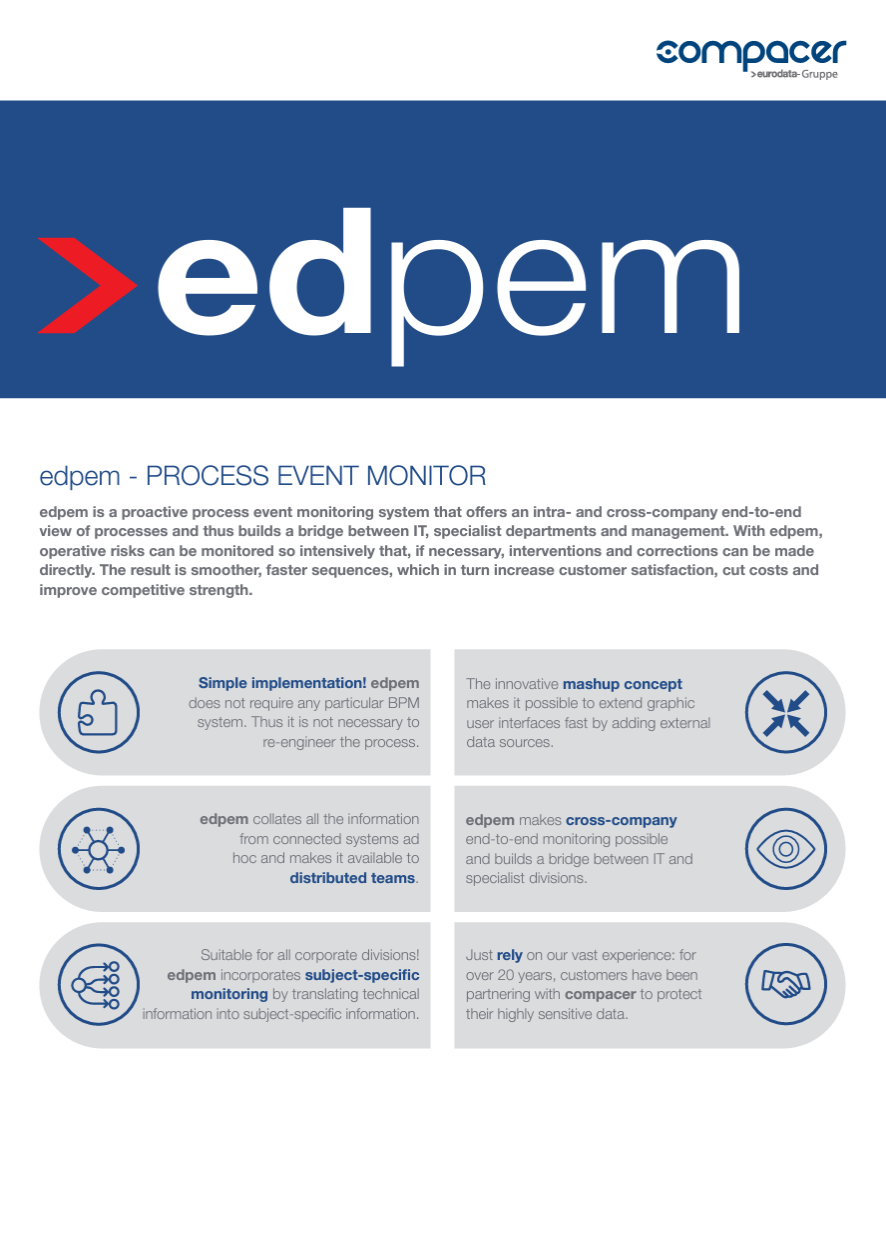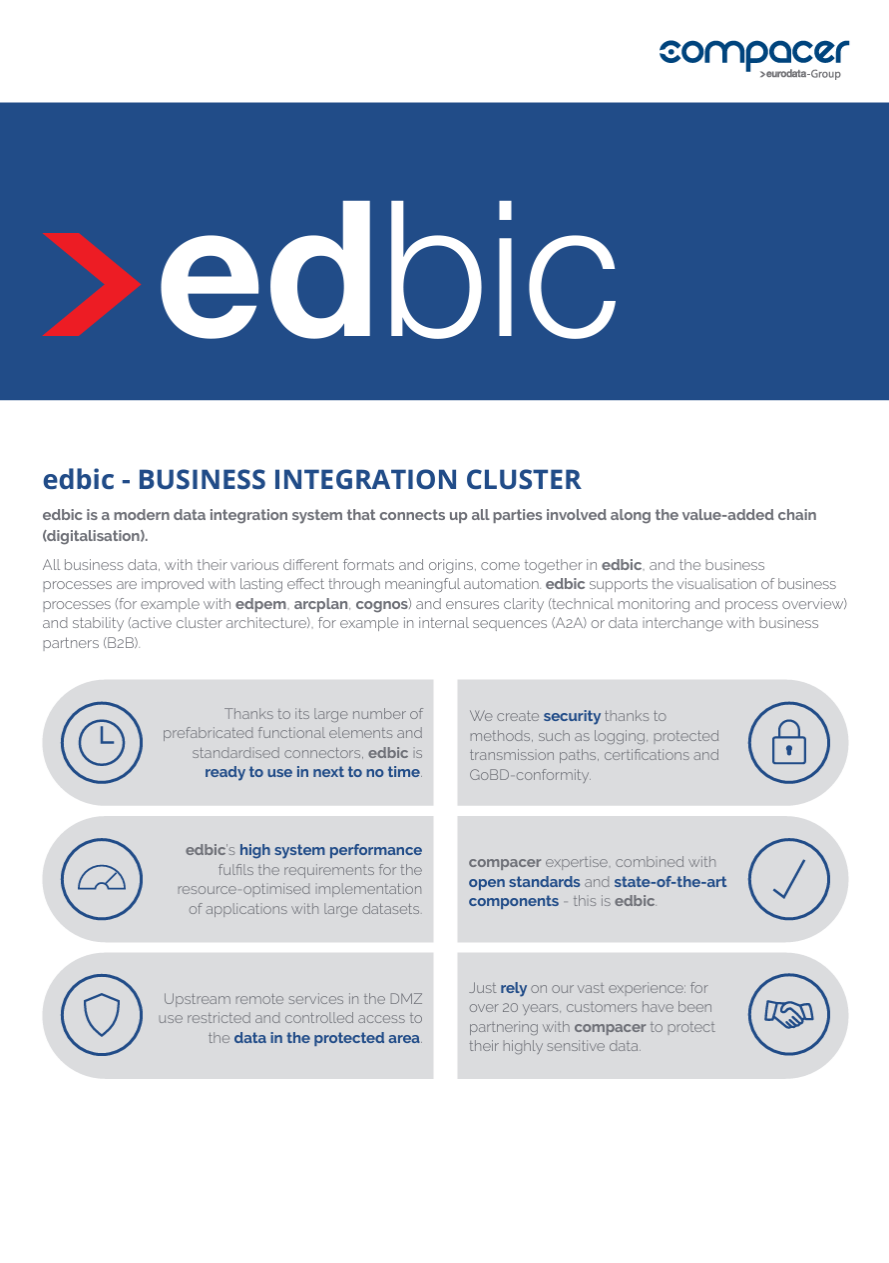Haaste
Lääkeyhtiö tekee tiivistä yhteistyötä logistiikkapalvelujen tarjoajien kanssa. Koska tämän sektorin tilausliiketoiminta on hyvin epävakaata, ei ollut mahdollista antaa tarkkoja lausuntoja kapasiteetin käyttöasteesta, mikä johti toistuvasti ongelmiin palveluntarjoajien kanssa perinnän aikana. Palveluntarjoajille on ilmoitettava viipymättä tavaroiden määrästä sekä siitä, mistä ja milloin tavarat on noudettava ja millä kuljetusvälineellä. Yhteistyön aikana haasteena oli tarjota liikennedataa reaaliajassa. Toinen kriittinen haaste oli tavaroiden jäljittäminen. Vaikka varastonhallintajärjestelmä oli käytössä, sitä ei aina käytetty optimaalisesti, koska yhteyttä yksittäisiin alueisiin ei ollut. Lisäksi sisäisten ja ulkoisten osastojen ja palveluntarjoajien reaaliaikainen seuranta oli integroitava logistiikkaprosessien optimoimiseksi.
Ratkaisu
Logistiikkaprosessien parantamiseksi edpem otettiin käyttöön päästä päähän -valvontaratkaisuna. Valvonta takasi täydellisen yleiskuvan toimitusprosessista: SAP-tilausasiakirjasta ja laskusta tavaroiden toimitukseen. Myös varastonhallintajärjestelmän liittäminen ja valvonta oli osa tehtävää. Johdonmukainen tavaroiden seuranta koko toimitusketjussa mahdollisti nopean tiedonsaamisen ilman muiden osastojen osallistumista. Tämä säästi arvokasta aikaa ja resursseja. Kuljetusliikkeelle saavutettiin optimaalinen ajoneuvovalinta pakettien noutamisessa ja tuoteseurannan varmistamisessa eräkohtaisesti. Sisäisten IT-järjestelmien turvallisuus taattiin, koska ulkoisilla kumppaneilla oli pääsy vain edpemiin, eikä sisäisiin sovelluksiin tarvittu käyttöoikeuksia. Paketteja skannaamalla asiakkaiden tilauksia voitiin seurata ja jäljittää. Tulos: ongelmat havaittiin ajoissa ja prosessien omistajille ilmoitettiin reaaliajassa. edpem:n avulla yritys voi seurata koko toimitusprosessia tuotteen pakkaamisesta varsinaiseen toimitukseen asiakkaalle. Sähköinen tiedonsiirto (EDI) ja siitä johtuva automaatio ovat luoneet uusia mahdollisuuksia parempaan palveluun ja laadukkaampaan laatuun - sekä asiakkaalle paikan päällä että logistiikkapalvelujen tarjoajille.
Asiakkaamme
lääkeyhtiö hoitaa potilaita maailmanlaajuisesti saksalaisvalmisteisilla tuotteillaan, jotka lähes kaikki valmistetaan Baden-Badenin päätoimipaikassa ja jaetaan laajan verkoston kautta. Painopiste on luonnollisista ainesosista valmistettujen lääkkeiden kehittämisessä ja valmistuksessa. Yritys on siis kasvanut maailmanlaajuisesti ja toimii 50 maassa ympäri maailmaa.

/Pharmazeutisches%20Unternehmen/6018289.png)



